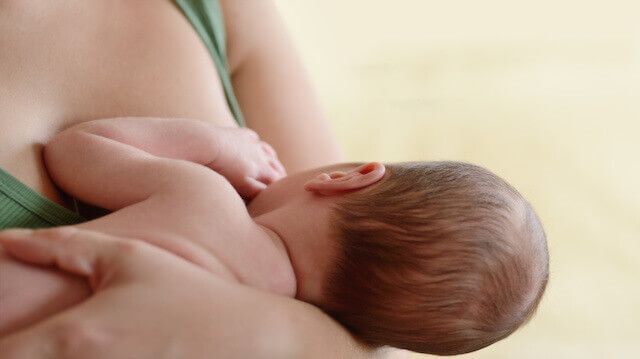
Past studies have shown that breastfeeding is essential for the health of a baby and can reduce a woman’s risk of developing breast cancer. According to a study conducted by researchers from the University of Pittsburgh, women who breastfeed not only have reduced cancer risk, but also have reduced risk for type 2 diabetes, high blood pressure, hardened arteries, high blood sugar, and high body mass index.
Study details
Researchers analyzed data from nearly 140,000 women participating in the Women’s Health Initiative (WHI) observational study. The women were examined for a period of 20 years. During this period, women who breastfed for 12 months or longer (it didn’t matter if the women breastfed a single child or multiple children), showed reduced risk for cardiovascular disease, high blood pressure, type 2 diabetes and atherosclerosis (hardened arteries).
Other studies have shown that breastfeeding can reduce the risk of developing rheumatoid arthritis, can reduce the amount of fat in the blood, and encourages faster postnatal recovery.
Benefits of breastfeeding for moms
- Lower BMI
- Reduced risk for type 2 diabetes
- Reduced risk of postpartum depression
- Lowered risk of cardiovascular problems
- Lower blood pressure
- 50 percent lower risk for developing rheumatoid arthritis
- Reduced risk for ovarian cancer
- Faster recovery after birth
How to gain the benefits of breastfeeding
The greatest benefit was seen when women breastfed for 12 months or longer. Since many women have to return to work within six weeks to three months after their babies are born, breastfeeding for a year can be a challenge. Use these tips to extend the breastfeeding experience as long as possible:
Establish the correct breastfeeding position
 Many women give up on breastfeeding due to issues such as painful nipples, a baby who doesn’t seem to be getting enough to eat, and mastitis. Many of these issues stem from an incorrect feeding position. An observational study found that when women reclined with their baby feeding from a face-down position, lying across the mother’s chest, many common breastfeeding problems were solved.
Many women give up on breastfeeding due to issues such as painful nipples, a baby who doesn’t seem to be getting enough to eat, and mastitis. Many of these issues stem from an incorrect feeding position. An observational study found that when women reclined with their baby feeding from a face-down position, lying across the mother’s chest, many common breastfeeding problems were solved.
Pump often
Use a mechanical breast pump when away from your baby for more than three hours. Don’t go longer than three hours without feeding your baby or pumping, or your supply will drop.
Breastfeed when you can
Feed your baby as often as he or she wishes to eat (most babies want to eat every 1.5 to three hours). Don’t skip night feedings. Keeping your baby in your room until he or she is weaned makes nighttime feedings easier.
—The Alternative Daily
Sources:
http://www.nlm.nih.gov/medlineplus/videos/news/Breastfeeding_Heart_070915.html
http://www.ncbi.nlm.nih.gov/pmc/articles/PMC2714700/
http://www.telegraph.co.uk/news/health/news/10780113/Breastfeeding-may-cut-risk-of-heart-disease-by-more-than-statins-research.html
http://www.livescience.com/18708-breastfeeding-health-benefits-moms-women.html
http://www.midwiferytoday.com/articles/BiologicalNurturing.asp

